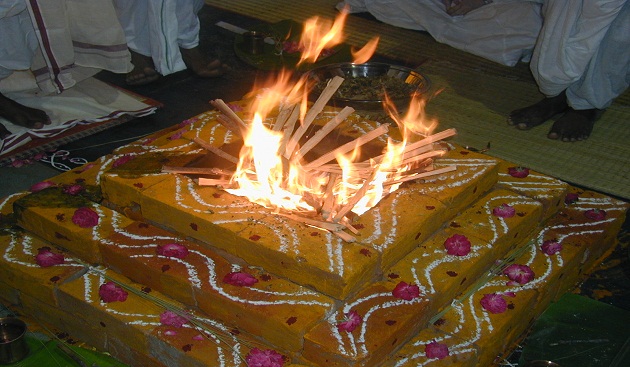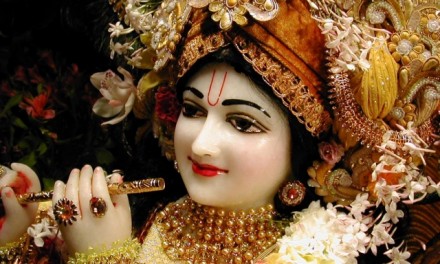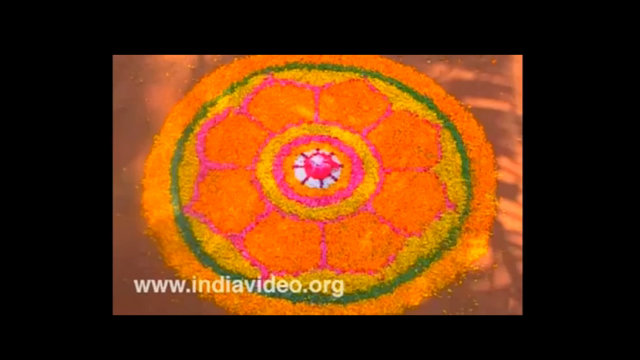Manushya- Yajna
This is service to fellow human beings. All kinds of social services come under this.
Adhithi devo Bhava – guests should always be welcome. They must be served with love, respect and reverence. This is the backbone of traditional Hindu hospitality.
Service to humanity is service to God. This is conveyed by Sathya Sai Baba in His words “ Nara seva is Narayan seva”.
Bhutha-Yajna
This is service to all living beings like animals, birds, insects, trees, forests etc.
We must remember they are also serving us. The kolam drawn with rice flour is meant for feeding ants. The rice offered everyday after naivedyam helps the crow to feed on it.
Offering bali to various creatures also comes under bhuthayajna. Bali means that which is offered directly – and not in the fire. This is common in Kerala temples and is done in some homams. The flour offered in the ant hill for the snakes is sarpabali.
In many pujas, offerings are thrown outside the house with the chanting of the mantras. The latter are meant for various creatures of the earth and are termed bali.
Environmental protection and ecological protection come under this yajna.
This practice is intended to create the awareness, to share with all other living beings on earth.
All the above yajnas are necessary for one’s inner growth and one yajna cannot replace the other. Each is important in its own way. All the above must be practised everyday in one’s affordable manner.
Thiruvalluvar has said more or less the same thing as the Vedas say:
” Thenpulattar, deivam, virundu, okkal, tan endru angu Aimbulattaru ombal thalai.” Five are the duties of the householder, namely, the offering of oblations to the ‘ pitrus’, the performance of sacrifice to the Gods, the doing of hosptality,the rendering of help unto others and looking after one’s own self.






